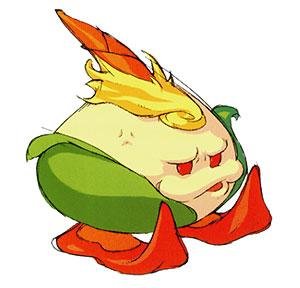Please note this post will contain spoilers for Breath of Fire III.
As you may recall, I’ve been playing through Breath of Fire III lately. Well, last night I got to the end of it, and I did something I never have in the other times I played it – I chose the ‘bad’ ending. What you’re intended to do is fight and overthrow the Goddess, who is keeping the world in a static place, in the belief that change can only make things even worse. There are hints of this throughout the latter part of the game, and she admits as much herself – but in my adulthood I’ve found her case rather more seriously presented, and compelling, than I did when I played through when I was much younger.
Now, to be clear, the game suffers from what I would suggest are poor writing decisions. One of the characters is implicated as being very much more important than you presume, but they only actually reveal this when you are talking with the final boss before deciding whether to acquiesce or to fight. Therefore I can as a player understand it all and deduce that this character is probably speaking sensibly – but it should be rather less convincing to my character. Indeed, some of the other reactions to what they learn in the very last room of the game are a bit weak as well, though it’s somewhat more forgivable because the characters really couldn’t have time to develop more complex opinions at that point.

It got me thinking about it all though. The ‘bad’ ending isn’t really presented as being all that terrible, as long as you keep in mind what the characters know rather than what you know about tropes. And what the Goddess said about the possibilities of the alternative mean it’s quite believable that they would be happy enough with the outcome. Despite this it feels a bit lacking – it’s clearly the “bad” ending because if nothing else, there’s a good deal less to it than the “good”. A lot of games seem to suffer from this sort of thing; sometimes an alternative ending is acceptably given less time, or is quite clearly the worse option to take, and very often it’s not left up to the player to fully decide whether their course of action was right. Games try to do this sort of thing, and for many “player choice” and the like is very vaunted, but a JRPG nearly 15 years old seems to make a better stab at actual ambiguity and leaving it to the player to decide the worth of what they did than a lot of modern ones with their binary DOUBLE GANDHI/EVIL LINCOLN dichotomy.
These days I would normally load up a save towards the end of a game and see the other ending(s) just for completeness. I’ve decided not to with this playthrough. It feels satisfactory leaving it where it is.
